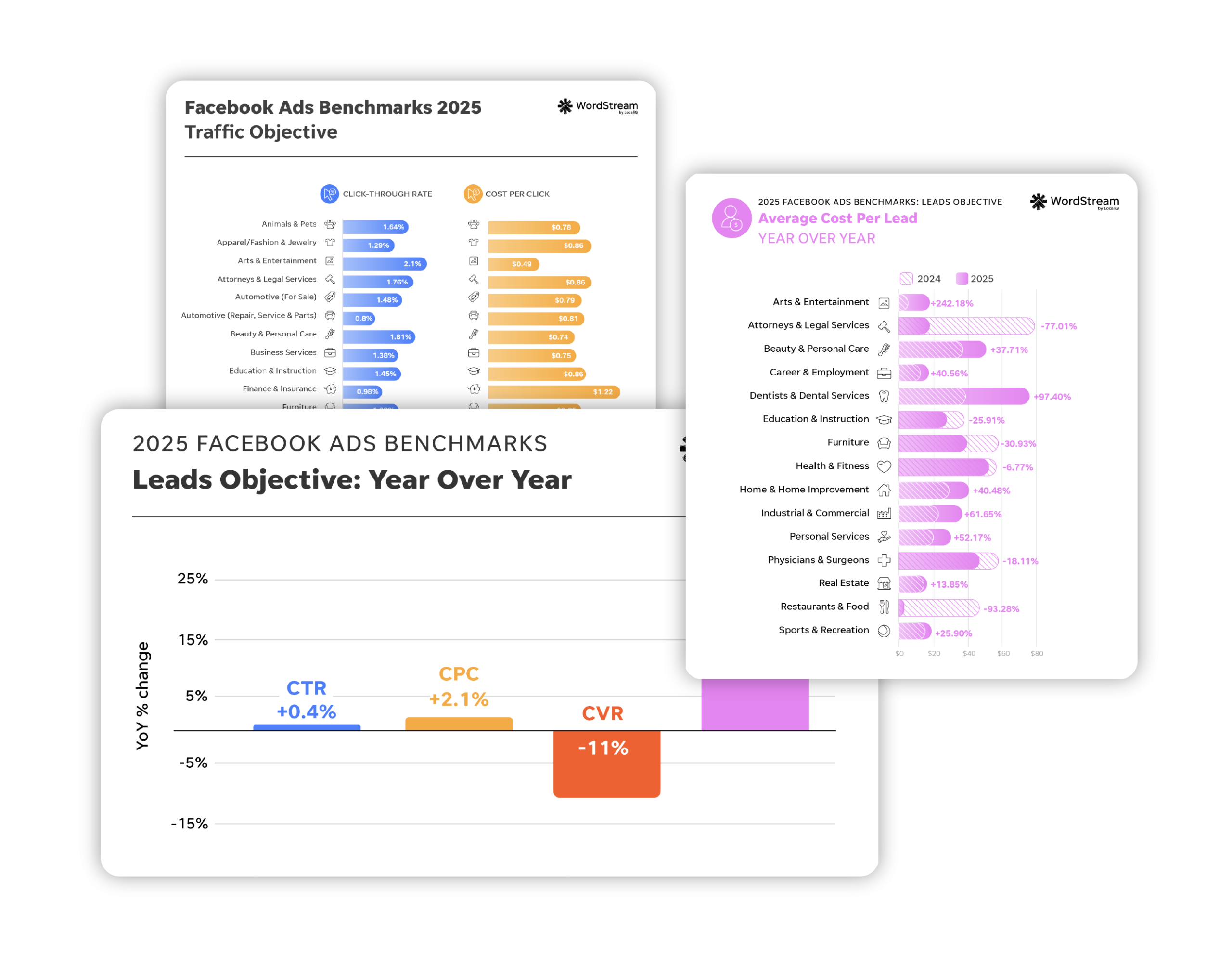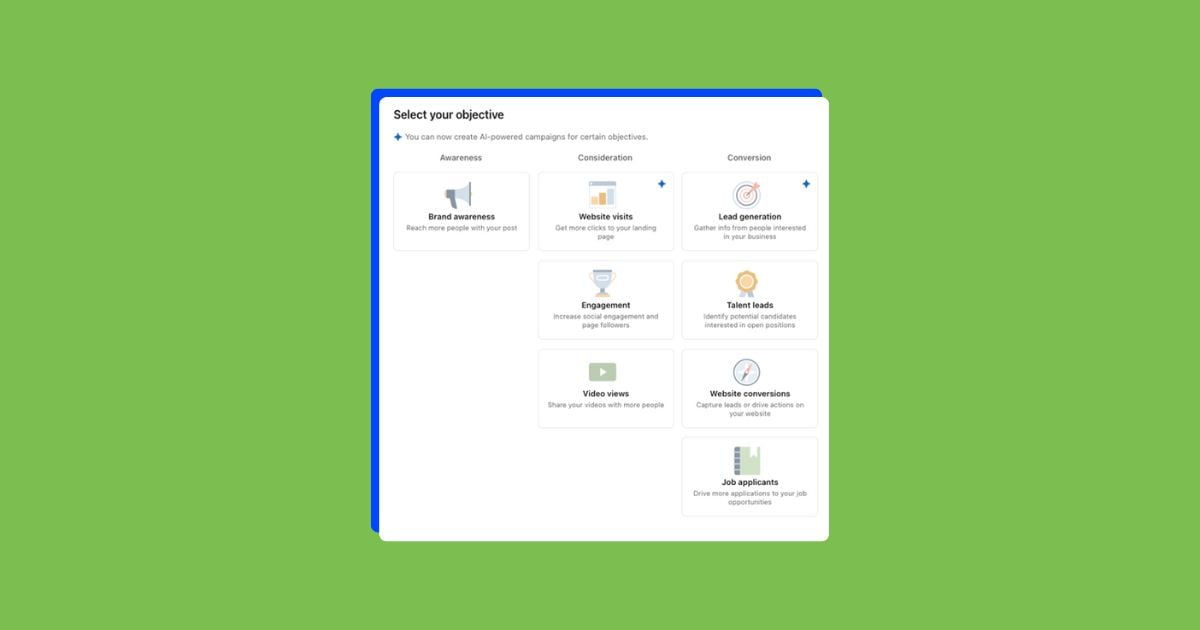The Facebook Ads platform has many bells and whistles that can get even the seasoned advertiser turned around from time to time.
One aspect of Facebook that should be simple and easy to cover is budget. Give a dollar amount and go, right?
Not so fast.
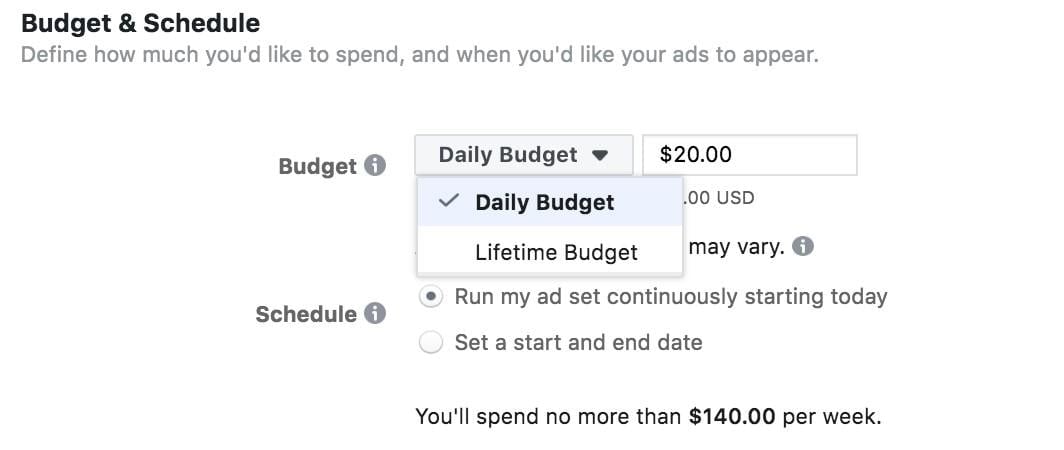
There are two types of budget for Facebook, daily and lifetime. Both options have benefits and drawbacks, and it’s not always clear which you should choose. So let’s go through each to help you make the right decision for your accounts.
Daily Budgets
Daily budgets are the easiest to set up, but also have some intricacies that all advertisers should be aware of.
With daily budgets, Facebook will spend only up to the amount of budget per ad set you give it per day. Seems pretty simple, and it is.
The Benefits
This pattern of spending your entire budget daily allows for much easier pacing of spend. Each day you can count on the fact that the same amount will be spent, making it much easier to control your budgets and plan ahead financially.
Additionally, if performance in your ad set is strong and you’re seeing the results you want at the cost you want, then it’s a good thing that Facebook is working hard to gain you as much volume as possible within your budget.
Next, Facebook daily budgets are the easiest set up for a campaign you want to be evergreen. If you plan on running a campaign in perpetuity, or until performance dictates and end date rather than scheduling, then daily budgets are a good fit.
Additionally, if your budget is going to fluctuate from day to day, daily budgets are a great option. Lifetime budgets, as we’ll discuss, are best when a budget is set and then left in place until the end date is reached. If you’re anticipating regular changes to your budget, daily budgets are likely the better choice.
A tip for changing daily budgets: Keep budget adjustments within 20% of their original level for each day. Any change larger than this will have a negative impact on the Facebook algorithm and performance can be very jarring.

If you need to double your spend or cut it in half, ideally, you would make changes every day in 20% increments until you reached the level you needed. (I realize this isn’t always doable, but if it is, this is the right way to go if you can.)
The Drawback
There’s a catch with daily budgets: Facebook will not only spend up to that daily budget limit, it will actively try to spend the full daily budget you’ve given every single day, no matter what performance is on the account.

In the image above, the ad set budget is $32, and it’s spot on where the average spend is for the past 30 days.
Since Facebook targeting operates more like Display than Search, you’re working to get impressions in front of a target audience rather than responding to their fluctuating demand. With daily budgets, Facebook will show as many impressions as it needs to that target audience to make up your daily spend.
Now, although that sounds ominous, it’s not necessarily a bad thing.
And a second drawback for daily budgets: There is no ad scheduling. This means that your Facebook ads will run at all hours of all days of the week (unless you have an external tool to assist). If you need to have campaigns active only during certain portions of the week or times of day, then daily budgets might not be the way to go.
Lifetime Budgets
Lifetime budgets are a bit different and have their own benefits and challenges.
When setting up lifetime budgets, you give Facebook the budget you’d like to spend for the entirety of the campaign and then choose the date the ad set should end on.
The Benefits
Facebook is a bit more performance-conscious with lifetime budgets than it is with daily budgets. With lifetime budgets, Facebook will adjust daily spend levels based on the results of the campaign.
If one day sees strong performance, Facebook will spend more of the budget that day to take advantage of the day. It will then also lower daily spend on days where results aren’t as strong to conserve for another strong day. At the end of the run time, the total spend will even out to the original budget you gave.
Another benefit is that lifetime budgets allow advertisers to choose the hours of the day and days of the week that the campaign will be running.
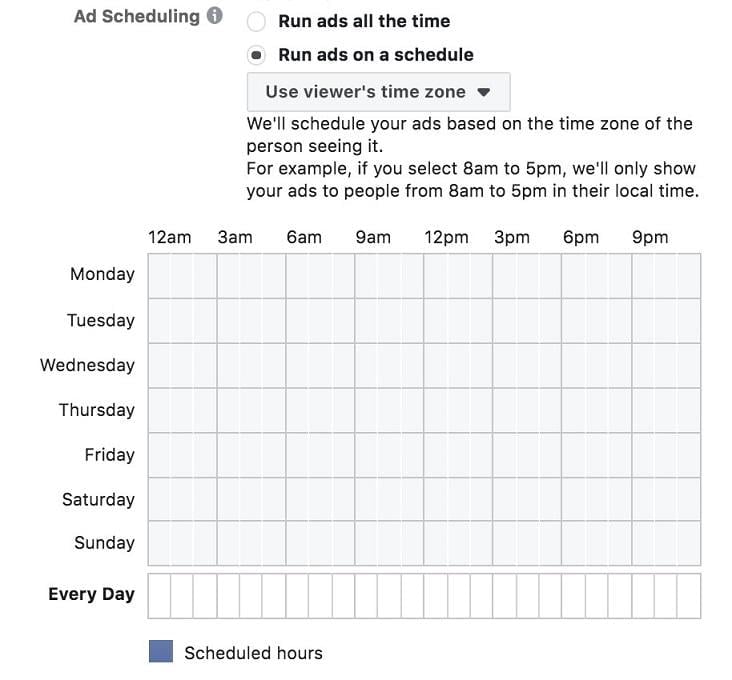
If you need to display your ads only during certain hours, this is the budget type for you. (That said, I suggest only using this from the get-go if it’s absolutely necessary and otherwise letting performance decide when your ads are on and off, but that’s a post for another day.)
The Drawbacks
With the good comes the bad, but admittedly, the “bad” for lifetime budgets is more a sense of convenience than anything.
With lifetime budgets, daily spend can fluctuate a lot. It can be tough to know what kind of coverage you’ll be getting on any given day or what your ad spend will be. If you’re in an important season for your business and need to ensure you have coverage, or if you simply want to know what to expect when it comes to your ad spend, it might make more sense to go with daily budgets.
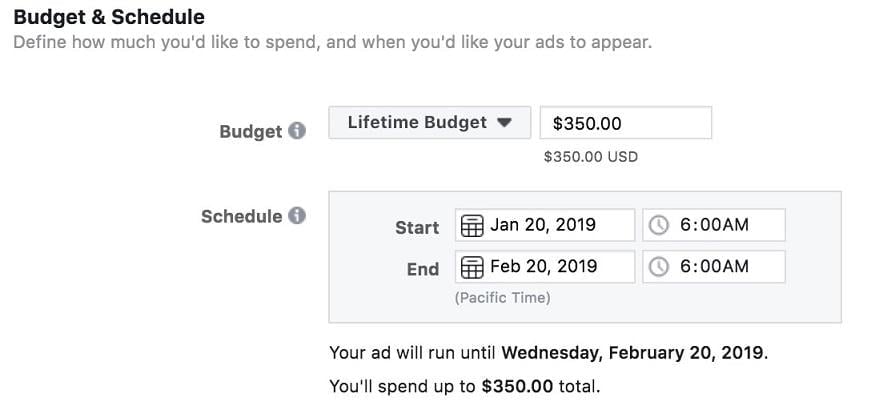
Lifetime budgets require advertisers to set an end date along with your budget. By doing this, you’re telling Facebook the amount of money it has to spend for that timeframe.
If you are certain there will be no changes to the time frame or budget, this is a great option. But if you’re likely to get additional budget or lengthen or shorten your promotion, then this might not be a good fit.
Although adjusting budget and changing the end date are possible, doing so will impact how Facebook prioritizes your budget.
Let’s say, for example, you set an ad set to run for two weeks, but then have to cut it down to only one after a couple days. Facebook will then adjust and spend a much higher amount on those last few days to try and spend your lifetime budget during the shortened period.
Lifetime Budget vs. Daily Budget
Now, that was a lot of information to keep track of. Here’s a quick review of the key times you’ll want to choose one of these budget options over the other.
Choose daily budgets when:
- Your campaign will be evergreen
- You want to maximize strong performance
- You expect to change your budget regularly
Choose lifetime budgets when:
- You need to run your ads on a schedule
- Your campaign has a set budget and end date
Not choosing the right budget option can be a costly Facebook advertising mistake. Keep these differences in mind so you can identify the right option for your campaigns!

